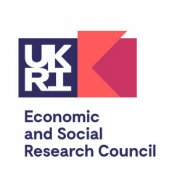
DCD/Dyspraxia knowledge exchange day
Start date
October 2022End date
December 2022Overview
Dyspraxia, or Developmental Coordination Disorder (DCD), affects motor skills over the lifespan and considerably diminishes academic achievements as well as general quality of life. This project activity relates to the organisation of a public event at the University of Surrey during Dyspraxia Awareness Week (3-8 October 2022) together with Royal Holloway University of London. Activities during the day included talks, poster presentations, fun demos to help understand dyspraxia, opportunities to participate in on-line DCD research or register to join the University of Surrey research database and to contribute to the design of new studies tailored for individuals with DCD.
Team

Principle Investigator
Dr Judith Gentle
Senior lecturer in Psychology
Biography
I completed my BSc. (Hons) in Psychology, Childhood and Ageing at Reading University in 2009. I was then awarded an ESRC Research Studentship in Psychology Quota Award 1+3 at Oxford Brookes University, and went on to complete an MRes degree in Psychological research in 2010. My PhD focused on walking patterns of individuals with and without DCD and was completed in February 2015. I have been lecturing at The University of Surrey since 2015.

Dr Marie Martel
Researcher, Royal Holloway University of London
See profileContributors
Jaye Somers, Saimah Khan, Dr Lewis Jayes, Emily Ling, Matt Devonshire, Rosie Edmondson, Mirela Ivanova, Holly Riggs, Dr Anna-Stiina Wallinheimo, Dr Darren Tunstall, Dr Will Mayes, Aysha Bellamy and Georgina Meehan.
Impact
It was intended that this was a knowledge exchange event where researchers in DCD and individuals with the condition shared ideas and experiences. Therefore, as well as listening to talks about our research, attendees were invited to share ideas for future research so that research could be tailored to address specific needs and problems of people with DCD and ensure maximum benefit is gained. Attendees were incredibly supportive of this inaugural event and wanted to get involved in research projects. They were grateful of this event and particularly appreciated the chance to speak with researchers and others’ with DCD.
During the event there was a great response to the activities organised to increase understanding of some of the difficulties individuals with DCD face every day. Attendees enjoyed comparing the differences when writing a sentence with each hand; or trying to button a shirt whilst wearing gloves.
Additionally, there were some excellent discussions exploring different ‘strategies for success’ around diverse topics such as time management, mental health, co-occurring conditions and talking to employers about DCD.
The cookbook stand was very popular and there are plans to take this idea forward based on feedback during the event. Advice was shared on planning, time management and which utensils work best for individuals with DCD as well as several recipes that are tasty and easy to make.
Two representatives from the Dyspraxia Foundation (Matt Devonshire and Rosie Edmondson) attended the event and they offered excellent advice to attendees on a wide range of topics including support for families and parents as well as help for children with DCD in school.
Going forward, there are plans to make this an annual event at Surrey University and there are lots of new ideas to incorporate to make it bigger and better. For example, the intention is to invite specialists working with individuals with DCD such as occupational therapists and SEN teams to attend and share their advice on practical issues. Impact will be broadened by recruitment of other DCD research centres throughout the UK to run similar events during Dyspraxia awareness week.
This annual event to will increase understanding of DCD/Dyspraxia through new research, tailored to the specific needs and problems of people with DCD and, most importantly, encourage a sense of community and empowerment for individuals with DCD.
Impact Acceleration Account awarded projects
Our projects are all playing their part in turning social science research outcomes into meaningful impact that will touch our lives and communities.